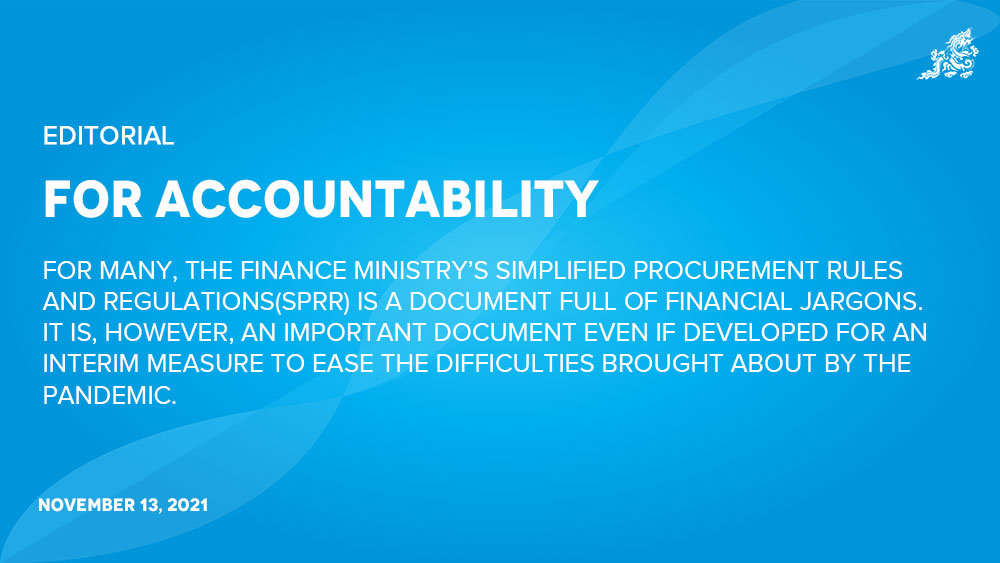For many, the finance ministry’s simplified procurement rules and regulations(SPRR) is a document full of financial jargons. It is, however, an important document even if developed for an interim measure to ease the difficulties brought about by the pandemic.
What the simplified procurement rules is going to do is fix accountability in the procurement business. This is what is needed.
When we say procurement in the government or public corporations, the image is still about billions of Ngultrum going astray in the procurement process. From simple purchases like uniforms for security guards or a few printer cartridges to millions worth of equipment or consultancy service, government procurement is seen as a lucrative business. There are many loopholes to be exploited to the extent that the image of a procurement officer is a man with a lot of money or the prospect to make money.
The procurement business is one area where government agencies and the private sector work closely in areas of trading, logistics, construction, consultancy and many more. It is also, however, a web of problems. It is a lucrative business – both for the government officials and the private sector.
Procurement, however, is also synonymous with corruption, misuse of authority, red tape and favouritism. All this has roots in the fact that those involved are not held accountable.
We see a newly-blacktopped road develop potholes within weeks, we see goods supplied not meeting specifications or procurement worth millions are not done without following procedures. Yet, we never hear people responsible taken to task for the failure or poor workmanship.
The impact is on service users, whether it is a bad road, which is visible or a consultancy service that is buried under documents.
The revised and simplified procurement rule stress on fixing accountability. It is late, but better than never. A finance ministry official said that whenever there were lapses in the procurement, it was not clear whether the project engineer, tender committee, tender evaluation committee, officials involved in the procurement process, contractors or the suppliers should be held accountable.
Procurement starts with tenders. There is a lot of bureaucracy -intended to plug loopholes and there are many officials involved. When a work or a project goes astray or fails to meet standards, nobody is held accountable. This unfortunately emboldens both government officials and their partners in the private sector. That’s why we see a contractor terminated and blacklisted for failing to deliver only to take up another government job the next month.
The Covid-19 pandemic has come as a reminder that we had been wasting scarce resources in the procurement process. The focus today is to transform the way we do business and emerge from the pandemic with better systems. We didn’t actually need a pandemic to expose the ailing in the procurement system. We knew a lot was going wrong and that something had to be done.
The pandemic has put a lot of economic activities on hold. The hope is that there will be renewed urgency as we try to meet the targets of the 12th Plan. If the business of procurement can be done professionally, we will see a lot of public resources saved and public services improved.


